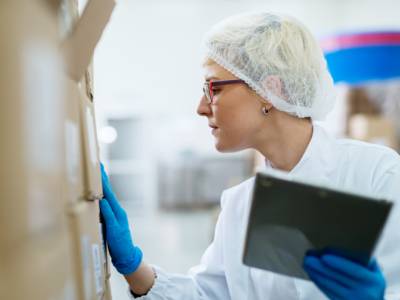-
Europa
Online food distribution in the European Union
11 September 2018
- Lebensmittelrecht
When considering the requirements for online food distribution in the European Union the first question to address is: does the food product in question fall under the definition of “food”?
Almost every food product fall under this definition.
„Food“ (or „foodstuff“) means any substance or product, whether processed, partially processed or unprocessed, intended to be, or reasonably expected to be ingested by humans (according to Article 2 of Regulation (EC) No 178/2002).
„Food“ includes drink, chewing gum and any substance, including water, intentionally incorporated into the food during its manufacture, preparation or treatment. This definition includes also food supplements and dietary food products.
It does not include amongst others: feed, medicinal products and cosmetics.
Is there any requirement of applying for a license in order to sell food products online over the internet on the EU market?
The only general requirement for all foodstuffs in this respect is the registration with the competent food control authority as any other food business which distributes its products offline is obliged to do.
According to article 6 par. 2 of Regulation (EC) Nr. 852/2004 every food business operator, and this includes also the online-shop retailers (E-retailers), shall notify the appropriate competent authority, of each establishment under its control that carries out any of the stages of production, processing and distribution of food, with a view to the registration of each such establishment.
This means, that even storerooms which are used only for a certain time have to be notified with the competent authority.
Food business operators shall also ensure that the competent authority always has up-to-date information on establishments. This includes the notification of any significant change in activities and any closure of an existing establishment. There are also some exceptions to this rule.
Food businesses distributing their products online are controlled in a risk-based manner in the same way as conventional retailers.
What applies to food businesses trading in food of animal origin?
A large number of companies which place food of animal origin on the market are subject to a duty to obtain authorisation. The companies authorised by the competent authorities of the German federal states are recorded in a respective database in accordance with Regulation (EC) No 853/2004.
The corresponding lists, with companies from other Member States and from third countries, which export food of animal origin into the EU, can be found on the European Commission’s website.
This way, all parties, including consumers, who are interested in the manufacturing and trading of foodstuffs, are able to obtain information about the current state at any time.
Free movement of goods in the single European market vs. national regulations
The principle of free movement of goods applies in the European Union. What does this mean?
It means, for example, that products which do not conform with German regulations but which can be legally placed on the market in other Member States must also be legally distributed on the German market and other Member States.
Nevertheless, in the case of Germany, this regulation is limited by Section 54(1) Sentence 2 Point 2 of the German Food and Feed Code. According to this stipulation products which do not conform with German legal provisions can only be brought to market if they have been granted an appropriate general permission.
These general permissions must be applied for from the German Federal Office of Consumer Protection and Food Safety (Bundesamt für Verbraucherschutz und Lebensmittelsicherheit). This office then checks, together with other authorities, whether there are health objections to the product. Finally, they may accept the application or reject it.
In case a general permission was issued for one food business, then it also applies to alike products which are already on the market in EU Member States. Other importers can therefore refer to already issued general permissions and introduce their products to Germany under the conditions named in the general permission.
With what other laws and regulations do the food products have to comply with, when placed on the market?
There are a lot of EU-provisions as well as German laws and regulations to be met.
Roughly, one can differentiate between horizontal and vertical regulations.
Horizontal provisions apply to all foodstuffs and Vertical provisions apply only to specific food products, such as pastries, non-alcoholic beverages, gourmet food, meat, honey, spicery, chocolates, milk products, cheese products, potato products, food supplements, ice-cream, fruit processing products, tea, coffee, sugar and so on.
What happens if national food control authorities discover a “transnational infringement”?
A “transnational infringement” arises when a food control authority in one members state (e.g. Germany) concludes that a foodstuff could include health risks or does not comply with the legal requirements and this foodstuff originates from another EU Member State or a third country. This could happen when the food control authority takes a sample of the respective foodstuff and comes to this conclusion.
In such cases, the respective complaint of the authority, including all files (laboratory results, official reports etc), is forwarded via the German Federal Office of Consumer Protection and Food Safety to the competent authorities in the respective country of origin for the foodstuff.
The measures effected locally are generally disclosed to the Federal Office of Consumer Protection and Food Safety by the competent authority of the Member State or third country and forwarded to the federal states by the Federal Office of Consumer Protection and Food Safety.
What kind of marketing tool can an E-retailer use in order to distinguish himself from others?
Four existing seals meet the quality criteria of the so-called D21 initiative. These seals are thought to help consumers in order to reliably identify reputable suppliers. Food businesses can purchase one of the following four seals only if they are registered. Like this, they identify themselves to the consumer as being a store under official control.

The author of this post is Olga Dimopoulou



















